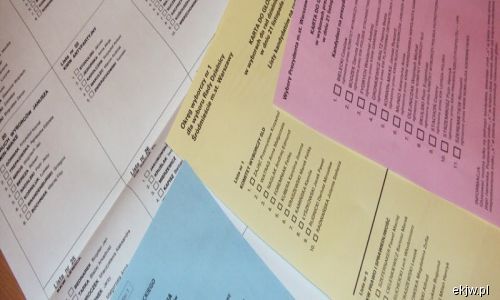- 2013/10/21
EFHR on bilingual ballots

At the end of August 2013, a bill amending Article 58 of the law on election to the Sejm was registered in the Lithuanian Sejm. It supplemented the regulation of the said article by stating that in districts where citizens belonging to national minorities constitute at least 10%, ballots should also be translated into the language of that national minority (as a translation of ballots in the state language). In a vote on the 10th of October, the Sejm supported the proposal of the law committee, which stated, among other things, that the proposal may be contrary to article 14 of the Constitution of the Republic of Lithuania, which states that the state language in Lithuania is Lithuanian. In addition, the Committee pointed out that this kind of regulation could violate the principle of equality in relation to representatives of national minorities, who constitute less than 10% of the inhabitants of the electoral district.
The European Foundation of Human Rights (EFHR) would like to draw attention to the fact that in April 2003, a month before the vote on the country’s EU membership, the Lithuanian legislator introduced the possibility of translating ballots into the language of national minorities (the regulation narrowed the scope of such a possibility to vote in referendums on Lithuania’s membership in international organisations). For the Constitutional court in 2006,this regulation was found to be contrary to the constitution. The Constitutional court stated that citizens (representatives of national minorities) who do not speak the state language adequately to vote should not be encouraged to take part in the decision-making process concerning the state. This is a justification that is very surprising. It contradicts all the principle of a democratic nation of laws that guarantees equal rights to every citizen. The decision of the Constitutional court thus classifies citizens who do not know the Lithuanian language into the second category. Thus creating a precedent uncommon in democratic countries.
EFHR would like to emphasise that in a democratic nation of laws, the electoral process should be accessible to all citizens. The authorities should encourage citizens to participate in the public life of the country rather than restrict their opportunities to do so. On the other hand, depriving people (representatives of national minorities) of their political rights due to insufficient knowledge of the country’s language may be perceived as discrimination on the basis of language, which is prohibited by the Lithuanian constitution.
In its latest report on the Lithuanian electoral process in 2013, the Office for Democratic Institutions and Human Rights (an institution of the Organisation for Security and Cooperation in Europe) emphasised that in towns densely inhabited by representatives of national minorities, the state should consider making electoral information (including ballots) available also in their mother tongue. In the organisation’s opinion, this solution will eliminate the language barrier that could cause national minorities to have problems when voting.
In the opinion of the EFHR, depriving representatives of minorities of the right to vote due to their insufficient knowledge of the country’s language is contrary to the guarantees of effective participation of citizens in the decision-making process in a democratic country.
Translated by Patrycja Parzych within the framework of a traineeship programme of the EFHR



